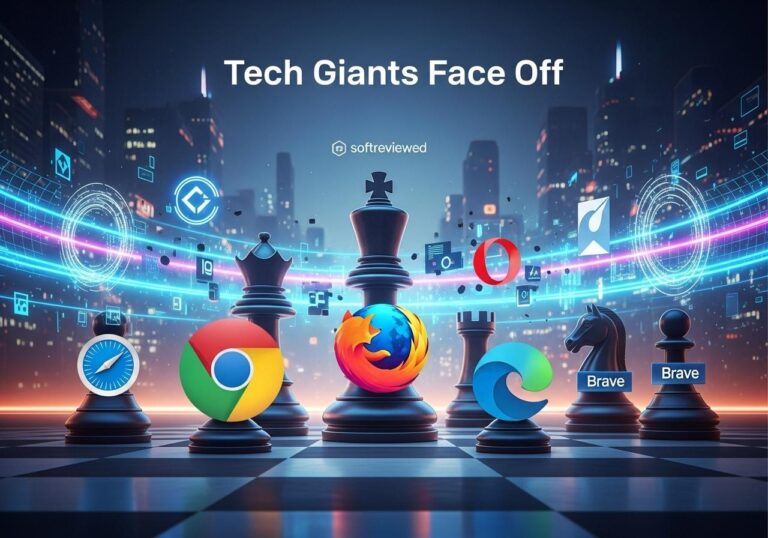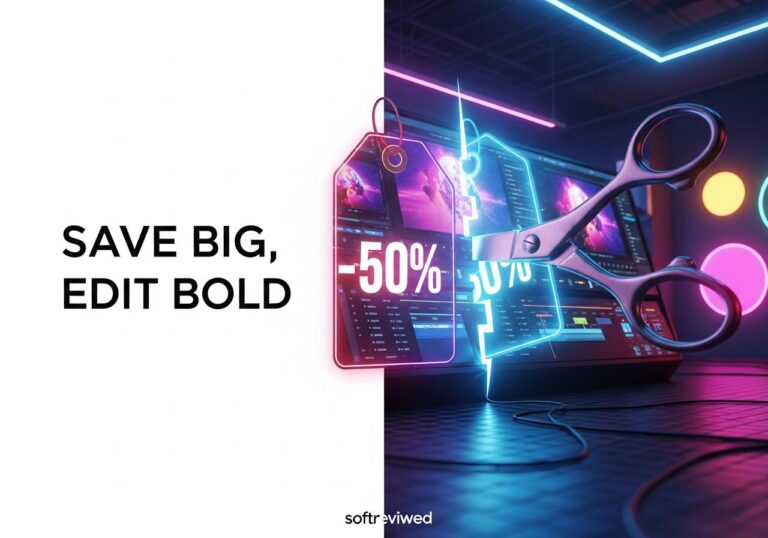Perplexity’s Bold $34.5B Bid for Google Chrome
A David vs. Goliath tech story: How an AI startup valued at $18B is attempting to reshape the browser market
The Audacious Offer
Perplexity, valued at $18 billion, has made an unsolicited $34.5 billion bid to acquire Google’s Chrome browser, a move that has shocked the tech industry given the significant valuation gap between the companies.
Antitrust Context
The bid comes amid a significant DOJ antitrust case where Google was ruled to have illegally monopolized the search market, creating a potential opening for divestiture remedies.
Public Interest Argument
Perplexity claims the acquisition would satisfy an “antitrust remedy in highest public interest” by creating an independent operator for Chrome, potentially addressing monopoly concerns.
Investor Backing
Despite Perplexity’s relatively smaller valuation, several major investors are reportedly backing the full $34.5 billion offer, demonstrating significant confidence in the strategic move.
Competitive Landscape
Perplexity recently launched “Comet,” an AI-native search browser designed as a direct competitor to Chrome, signaling the company’s strategic interest in the browser market. Comet aims to leverage advanced AI capabilities to enhance user experience, offering features such as personalized search results and improved content discovery. As the competition heats up, the launch comes at a pivotal moment, especially with the buzz surrounding Google’s new AI for search, which aims to redefine how users interact with information online. This strategic move positions Perplexity to capture a segment of the market eager for innovative alternatives.
Google’s Response
Google CEO Sundar Pichai has previously warned that selling Chrome would significantly harm the company’s business, highlighting how integral the browser is to Google’s ecosystem and revenue model.
The $34.5B Question: What Perplexity’s Surprise Bid for Chrome Actually Means
Perplexity has made an unsolicited $34.5 billion cash offer to acquire Google’s Chrome browser. It’s a headline-grabber—and yes, it’s real. Reported by major outlets and confirmed by Perplexity, the bid lands as a U.S. judge weighs remedies in the search antitrust case against Google, where divesting Chrome is on the table. Google hasn’t indicated Chrome is for sale, so consider this a strategic move in the AI-search era rather than a done deal.
What’s on the record right now
- Perplexity’s offer: $34.5B, unsolicited, cash; says multiple funds can finance it ✅
- Commitments if approved: keep Chromium open-source, invest $3B over two years, keep Chrome’s default search unchanged ✅
- Context: Judge Amit Mehta expected to rule on remedies that could include a Chrome divestiture; Google plans to appeal ✅
- Perplexity’s capacity: previously valued around $14–$18B; launched Comet (an AI-enabled browser/agent) ✅
For official context on Chromium, see Google’s open-source project page: Chromium remains the public codebase underpinning Chrome, which matters if ownership changes because it sets constraints on what any acquirer can do with the browser’s foundation.
Why this matters beyond the headline
Think of browsers as highways and AI agents as self-driving cars. Whoever controls the highway controls the tolls, lanes, data analytics, and where those “cars” flow. Perplexity wants highway influence to feed its AI search engine and agent ecosystem. If Chrome were separated from Google Search, default deals, ad flows, and data access could shift—affecting SEO, ad spend, and traffic patterns.
Quick history to orient you
- Chrome’s rise: From 2008 to ~3+ billion users, dominating desktop and mobile browsing.
- Regulatory thread: U.S. antitrust actions focused on how Google maintained search dominance, including default search deals.
- Remedies on the table: Potential divestiture of Chrome; licensing of search data; changes to default-setting power.
- New AI browser moves: Perplexity launched Comet; OpenAI reportedly interested in Chrome; Yahoo and others circling. The AI agent-browser layer is becoming the new battleground.
What Perplexity is promising (and why it’s strategic)

- Keep Chromium open-source ➡️ minimizes developer disruption and eases regulatory concerns.
- No stealth changes to default search ➡️ signals neutrality and user choice.
- $3B investment over two years ➡️ accelerates security, performance, and AI-capable features.
- Talent continuity ➡️ stability for Chrome engineering and roadmap.
👉 Translation: Perplexity is positioning itself as a “trustworthy steward” to satisfy potential court-ordered remedies and reassure users, developers, advertisers, and regulators.
Benefits and drawbacks if a sale ever happens
Potential benefits
- ✅ More neutral handling of defaults could reduce lock-in and open competition.
- ✅ Faster innovation in AI-native browsing and task automation (agents that book, compare, summarize).
- ✅ Possible transparency gains around telemetry and privacy settings, driven by regulatory scrutiny.
- ✅ For creators and marketers: new surfacing surfaces (answer cards, rich summaries) beyond Google SERPs.
Potential drawbacks
- ⛔️ Fragmentation risk in search defaults, extensions, or sync if governance shifts.
- ⛔️ Short-term instability in ad attribution, cookies/IDs, and performance metrics.
- ⛔️ Privacy tensions if AI agents expand data collection or session replay for “helpfulness.”
- ⛔️ Legal limbo: prolonged litigation could stall long-term product decisions.
Expert and industry takes, simplified
- Antitrust analysts: Google selling Chrome is unlikely without a strong court mandate; expect a long legal fight. The browser is integral to Google’s AI protection strategy (e.g., AI-generated overviews) and ad moat.
- Valuation voices: Some rivals argue Chrome could fetch $50B+ in a forced sale scenario—above Perplexity’s bid.
- Market observers: The bid signals AI-native browsers (and agents) are the next user-acquisition proxy for search.
Real-world examples you’ll notice soon
- AI summaries in-browser: Expect more “overview” style answers in the address bar or new tab—shifting clicks from traditional SERPs to browser surfaces.
- Agentic tasks: Compare products, scrape specs, auto-apply coupons, draft emails—without leaving the page.
- New ad units: Browser-level sponsored answers or agent recommendations, not just search ads.
- SEO shifts: Schema-rich, answer-ready content wins placements in browser-native cards.
Comparison table: Chrome under Google vs. Chrome under a new owner
| Dimension | Today (Google) | Possible Under New Owner |
|---|---|---|
| Default Search | Google as default in most regions | More neutral defaults; easier user switching |
| AI Features | Tied to Google stack (e.g., Overviews) | Potentially model-agnostic; agent-first |
| Developer Base (Chromium) | Strong; Google-led governance | Open-source continuity; broader steering |
| Ads & Attribution | Deep integration with Google Ads/Analytics | New browser-native ad/attribution models |
| Privacy Posture | Evolving (Privacy Sandbox) | Heightened transparency to satisfy regulators |
| Innovation Speed | High but risk-managed | Faster on agents; risk of fragmentation |
Visual: Flowchart of “AI Browser Funnel” (for your video/slide)
- User intent ➡️ Browser address bar ➡️ AI Overview/Agent ➡️ Suggested actions (compare/book/read/watch) ➡️ Conversion or handoff to site/app ➡️ Telemetry/attribution loop
What to do now (marketers, creators, and teams)
SEO/Content
- 📌 Optimize for answer extraction: FAQs, concise summaries, schema, entities.
- 📌 Create agent-friendly pages: clean markup, structured data, lightweight pages.
- 📌 Build comparison blocks and pros/cons sections that AI can lift.
Ads/Attribution
- ✅ Test privacy-resilient measurement: server-side tagging, MMM-lite.
- ✅ Diversify spend across channels to reduce Chrome dependency.
- ✅ Prepare for browser-native sponsored answers and agent placements.
Product/Dev
- 👉 Audit extension and PWA strategies for Chromium continuity.
- 👉 Monitor Privacy Sandbox changes and agent API announcements.
- 👉 Keep a fallback plan for sync, identity, and storage if policies shift.
Compliance/Privacy
- ➡️ Review consent flows for AI agents operating on-page.
- ➡️ Minimize sensitive







